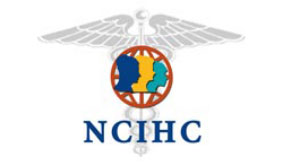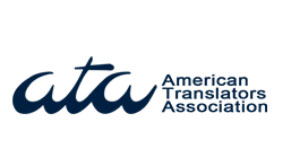- Why do you need an interpreter?
Title VI of the Civil Rights Act of 1964 establishes the need for professional healthcare interpreters to ensure meaningful access to healthcare for Limited English Proficiency (LEP) patients. The Policy Guidance issued by the Office for Civil Rights in 2000 provides the strategies to help healthcare organizations meet their obligations for culturally and linguistically appropriate services.
If your operations require person-to-person communication with a person whose English is limited, you need the services of an interpreter. Involving a complex skill set, interpreters must convey not only all the elements of meaning, but also the intentions and feelings of the original, source-language speaker. The end result of their labor should allow the target-language listeners to hear, perceive and experience the message as it was originally expressed in a language they understand.
At GlobeLink FLC, the credentials of all potential interpreters are verified before they undergo a fluency assessment, both in English and in their native language. For those with limited interpreting experience, in-house training is then provided in the skills required to provide accurate, professional interpreting services in a wide variety of situations.
Here’s an interesting paper commissioned by The Access Project in Boston and published in 2002: “What a Difference an Interpreter Can Make: Health Care Experiences of Uninsured with Limited English Proficiency”
- What is the difference between a certificate of completion and national certification?
CERTIFICATE OF COMPLETION:
A person becomes a trained interpreter when they earn a Certificate of Successful Completion after taking a course of study or training (minimum of 40 hours) such as the TCI course that we offer. Once the person has successfully completed the course or training and has received their Certificate of Successful Completion, the person is a professionally trained interpreter and a CERTIFICATE holder. The interpreter CANNOT refer to themselves as a Certified Interpreter.
See Website
NATIONAL CERTIFICATION:
National Medical Interpreter CERTIFICATION is a structured testing process through which a certifying body certifies that an interpreter meets a specified standard, based upon a series of requirements. The National Board of Certification for Medical interpreters (NBCMI) and the Certification Commission for Healthcare interpreters (CCHI) are the only recognized bodies in the United States which can issue the Medical Interpreter National Certification credentials. Once the interpreter has successfully completed this process by passing certification exams (NBCMI and/or CCHI), the interpreter is awarded a credential and may then call themselves a Nationally Certified Interpreter. Globelink FLC is a proctor of the CCHI exam.
See Website
- What is Legal and Court Interpreting?
Legal, Court, or judicial interpreting takes place in courts of justice, administrative hearings, and wherever a legal proceeding or consultation is held. One example of legal interpreting might be the consecutive interpretation of witnesses’ testimony for recording by a Court Reporter; another would be the simultaneous interpretation of trial proceedings for one person or multiple people in attendance.
Depending upon the regulations and standards adopted by different states and venues, court interpreters usually work alone when interpreting consecutively, and as a team when simultaneous interpretation is required. In addition to a practical mastery of the source and target languages, familiarity with the law and a thorough knowledge of legal and court procedures is required of court interpreters, as is the street slang in both working languages from the worlds of drugs, weapons, and other illegal enterprises. They often are required to have formal authorization to work in State Courts, and a federal certification to work in the Federal Courts.
- What is Medical Interpreting?
Medical interpreting is a specialized branch of public service interpreting in which communication between medical personnel and the patient and his or her family is facilitated by a professional interpreter. The medical interpreter must have a strong knowledge of anatomy, common medical complaints and procedures, patient interviews, and the medical examination process in order to effectively serve both the patient and the medical personnel. Medical interpreters are also cultural liaisons for people whose view and experience of medical intervention is often very different from what they will experience in the United States.
- What is Conference Interpreting?
Conference interpreting provides interpretation of the presentations made at international meetings and conferences, allowing comprehension and participation by all attendees in the conference languages, no matter what their native language might be. Although historically done in consecutive mode, the advent of readily available audio (and more recently wireless and video) technologies allow for the simultaneous interpretation of conference presentations into one or many languages.
Conference interpreters typically work in teams, ideally in soundproof booths from which they watch the presenters, listening through headsets and providing simultaneous interpretation into a microphone, which is relayed, in turn, to the headsets of participants who choose to listen in the offered language. Since the mental effort required of the interpreters is intense, they switch between active and passive modes every 20 to 30 minutes, assuring the highest possible quality of interpreting.
Conference interpreters generally work into their native language, and relish the opportunity to review documentation related to the presentations prior to the conference, since these are often highly specialized or technical presentations for which terminology research yields a far richer content for the recipients of their interpretation.
- What is Business Interpreting?
Increasingly, the buyers of our goods and services, or the providers of the goods and services we use in business are located in foreign lands. Whether negotiating the terms of a contract or going over design details, accurate communication is essential. A professional interpreter can save your company the expense and time that such misunderstandings can cost. Additionally, imagine the value of a professional interpreter’s input into your targeted marketing campaigns. Focus groups comprised of members of your target market group can be interpreted simultaneously, while the facial expressions and body language are readily observable by your marketing professionals.
- What is Public Service/Community Interpreting?
Also known as community interpreting, this service is often required in order for non-English speakers to negotiate services such as legal representation, health care, local government, social services, housing, environmental health, education, or public welfare. In community interpreting, factors such as the emotional content of utterances, the speaker’s cultural background and social surroundings, and the power relationships among participants make the intervention of a qualified interpreter indispensable. Interpretation by a friend or family member is often used in such cases, often to the detriment of the person in need of services, since such an emotionally involved person will, more often than not, diminish or exaggerate the person’s statements in an effort to manipulate the outcome.
Online Appointments & Translation
24/7/365
CONTACT US
(719) 532-0300
3720 Sinton Road Suite 120, Colorado Springs, CO 80907
Southern Colorado's Premier Foreign Language Service Provider Since 1978
Interpreting FAQ’s
Proud Members of:





